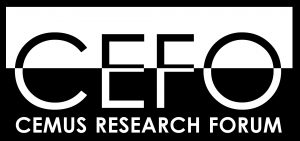
CEFO – The Center for Environment and Development Studies Research Forum, CEFO
Spring 2022 Schedule
The interdisciplinary seminar takes place Tuesdays 10:15-12:00 twice per month during term time via zoom or/and in the Baltic Library, at the Department of Earth Sciences, Villavägen 16. The first and last seminar each term includes planning discussions where PhD-students and researchers suggest future activities. The seminar is hosted by affiliated CEFO Members and supported by CEMUS, NRHU and the Climate Change Leadership Node at Uppsala University.
| Time | Title and speaker | Location |
| Jan 25 10:15-12.00 |
Fouad El Gohary & Isak Öhrlund: “Demand Response – Why people do/don’t respond to price signals in the electricity market” | Zoom / Baltic Library |
| Feb 8 10:15-12.00 |
Laila Mendy: “Incumbent-oriented intermediaries and Societal Transformation” | Zoom / Baltic Library |
| Feb 22 10:15-12.00 |
Pascoal Gota: “Our history does not exist in the books – Forest patches framing new identities for heritage conservation” | Zoom / Baltic Library |
| March 8 10:15-12.00 |
Paul Plummer: “Exploring the role of innovation systems within agro-food sustainability transitions – a case study of the Swedish wild berry industry” | Baltic Library |
| March 22 10:15-12.00 |
David Langlet | Baltic Library |
| April 5 10:15-12.00 |
Ola Persson: “Unpacking the tensions in a growing second-hand economy – The case of Sweden” | Baltic Library |
| April 12 10:15-12.00 |
Jenny Helin | Baltic Library |
| May 3 10:15 -12.00 |
Elin Boyer | Baltic Library |
| May 17 10:15 -12.00 |
Sara Gottenhuber | Baltic Library |
| May 31 10:15 -12.00 |
Sebastian Sobek: The Carbon footprint of hydropower | Baltic Library |
CEFO is mainly driven by Ph.D. students from across Uppsala University, along with senior faculty support. Our affiliated members and other participants are from diverse departments and disciplines, bringing multiple perspectives to the discussions. We encourage conversations framed by problem, not by discipline. Sounds interesting? To become a formally affiliated Ph.D. student see the affiliation agreement and contact the recruitment coordinator (Ryan). If you are a master student or researcher we would be happy to include you in our group as a non-affiliated member. The more the merrier!
The Center for Environment and Development Studies Research Forum (CEFO) is a transdisciplinary research forum open to researchers and Ph.D. students at Uppsala University, SLU, and other universities in Sweden. CEFO activities focus on environment, development, and sustainability studies. We collaborate with other universities and departments to enrich research education through our transdisciplinary Sustainability Seminars, Ph.D. courses, workshops, lectures, and field trips. CEFO was initiated by Ph.D. students, staff, and students at CEMUS in 2002 as a research school between Uppsala University and Swedish Agricultural University (SLU).
Twice per month we host a research seminar series featuring talks and workshops from CEFO members and invited speakers. We run skills workshops and organize field trips. We also initiate and run student-driven Ph.D. courses in collaboration with faculty and offer opportunities for getting feedback for your research from a wider audience. We welcome new members from all departments who hope to broaden their horizons. Seminars, workshops, and events are open to any interested Ph.D. students, researchers, master’s students, and the interested public.
Below you find a schedule for our activities, you are of course welcome to join them. In addition to that, we would be happy to send you invites to our activities, if you are interested in that please send an e-mail to our recruitment coordinator – narrowcenter@tutanota.com
Supported by
Uppsala University Climate Change Leadership Node and NRHU Natural Resources and Sustainable Development Programme.
CEMUS Centre for Environment and Development Studies, an interdisciplinary center for education, outreach, and research at Uppsala University and Swedish University of Agricultural Sciences (SLU).
